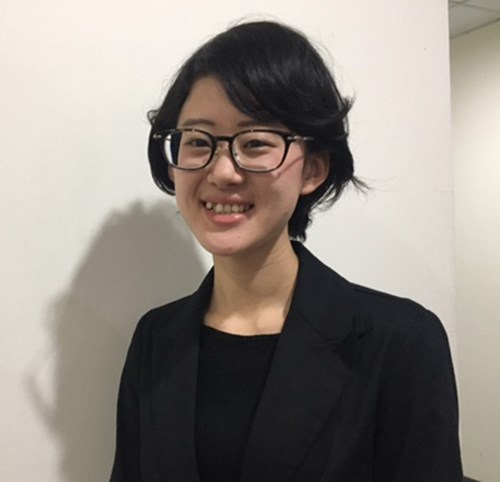The first time she tasted Chung cake, steamed chicken, and spring roll, popular dishes of the Vietnamese people in Tet, was in 2015 when she first visited Vietnam.
The Japanese postgraduate said that these dishes suit the climate in Spring, especially the cold weather in Northern Vietnam, and learnt that the Vietnamese people often sit together for the first meal in the Lunar New Year.
    |
 |
|
Kano Haruka likes Vietnamese dishes and traditional Tet of Vietnam. |
Regarding the similarities between Tet of Vietnam and that of Japan, she emphasized the family reunion. She added that both Vietnamese and Japanese love going to pagodas and temples to pray for peace and good health on first days of the Lunar New Year.
She also pointed out differences between the two countries’ new year festivals with traditional dishes as a highlight. However, she said that she loves Vietnamese dishes.
“My impression on the Vietnamese Tet is that the same dishes prepared by each family. I especially like the cozy and bustling atmosphere in the North of Vietnam when everyone extends Tet wishes to their relatives and friends,” she said, adding, “Tet is a good time for the whole family to review what they have done and have not done yet in the past year and map out their plans for the new year.”
Talking about her command of the Vietnamese language, Kano Haruka held that she was inspired to studying Vietnamese after she had enjoyed performances by the symphony orchestra of Vietnam in 2013 in Japan.
“The performances captured my interest right at the first sight. It was music that connected and urged me to learn the Vietnamese language to further study Vietnamese music,” she said.
Thus, she started learning Vietnamese in 2014. When studying the language and doing research of Vietnamese traditional music, she studied playing the dan bau (monochord) because the unique sound from the monochord touched her heart.
The Japanese postgraduate loves wearing Vietnam’s Ao dai (traditional long dress) while playing the monochord on the stage in Japan. She recalled that her performances left a deep impression on audiences, not only by the dress she wore, but also by the special sound of the musical instrument she played.
“Quite a few audiences want to visit Vietnam to have their own Ao dai tailored after my show,” she joyfully said.
She also highlighted the cooperation between Vietnamese and Japanese music artists over the past time, including the debut of the work “Yuzuru” by composer Dan Ikuma in the Hanoi Opera House in March 2013 and the opera “Bamboo Princess” by Numajiri Tatsunori in February 2015 in Hanoi as well.
“I believe that via such cooperation, the ties between the two nations will be further tightened,” she said and wished Vietnamese people success in all fields in the New Year.
Translated by Mai Huong